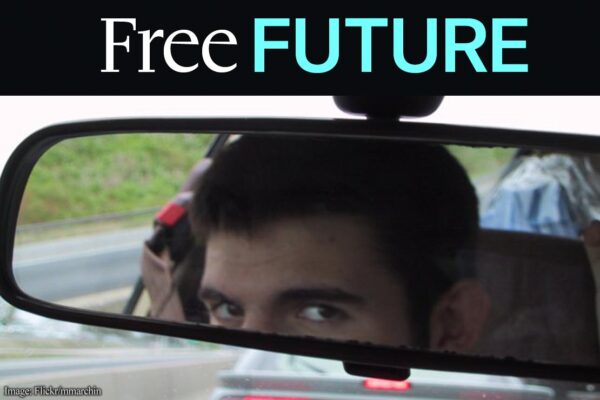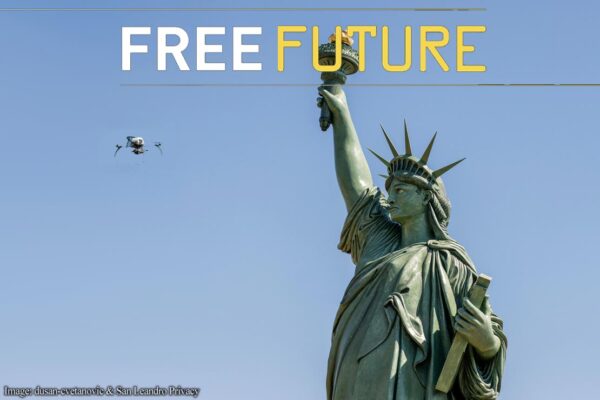Civil Rights Advocates Achieve the Nation’s Strongest Police Department Policy on Facial Recognition Technology
DETROIT, Mich. — Civil rights advocates announced today a settlement in the lawsuit brought on behalf of Robert Williams, who was wrongfully arrested by the Detroit Police Department in 2020 after the department relied on incorrect results from facial recognition technology. The groundbreaking settlement agreement achieves the nation’s strongest police department policies and practices constraining law enforcement’s use of this dangerous technology. The agreement will also lower the likelihood of wrongful arrests, especially for people of color and women, who are substantially more likely to be misidentified by facial recognition technology.
Mr. Williams is a Black man who was wrongfully arrested at his Farmington Hills home in front of his wife and two children for allegedly stealing watches from a Detroit store. His case is one of three known wrongful arrests where Detroit police relied on facial recognition technology. All three who were wrongfully arrested were Black.
Key components of the settlement include:
- Police will be prohibited from arresting people based solely on facial recognition results, or on the results of photo lineups directly following a facial recognition search.
- Police will also be prohibited from conducting a lineup based solely on a facial recognition investigative lead without independent and reliable evidence linking a suspect to a crime.
- Police training on facial recognition technology, including its risks and dangers and that it misidentifies people of color at higher rates.
- An audit will be conducted of all cases since 2017 in which facial recognition technology was used to obtain an arrest warrant.
The court will retain jurisdiction to enforce the agreement for four years. Under the terms of the settlement, Detroit will also pay monetary damages to Mr. Williams and attorneys’ fees.
“The Detroit Police Department's abuses of facial recognition technology completely upended my life,” said plaintiff Robert Williams. “My wife and young daughters had to watch helplessly as I was arrested for a crime I didn't commit and by the time I got home from jail, I had already missed my youngest losing her first tooth and my eldest couldn't even bear to look at my picture. Even now, years later, it still brings them to tears when they think about it.
“The scariest part is that what happened to me could have happened to anyone,” continued Williams. “But, at least with this settlement, it will be far less likely to happen again to another person in Detroit. With this painful chapter of our lives closing, my wife and I will continue raising awareness about the dangers of this technology."
“This settlement finally brings justice to Detroit, and the Williams family, after years of fighting to expose the flaws of this dangerous technology,” said Phil Mayor, senior staff attorney at the ACLU of Michigan. “Police reliance on shoddy technology merely creates shoddy investigations. Under this settlement, the Detroit Police Department should transform from being a nationwide leader in wrongful arrests driven by facial recognition technology into being a leader in implementing meaningful guardrails to constrain and limit their use of the technology.”
“The multiple wrongful arrests by police in Detroit and other American cities show that face recognition technology is fundamentally dangerous in the hands of law enforcement,” said Nathan Freed Wessler, deputy director of the ACLU Speech, Privacy, and Technology Project. “The most effective way to avoid abuses is for lawmakers to ban police use of the technology, as city councils from Boston to Minneapolis to San Francisco have done. But in jurisdictions where lawmakers have yet to act, police departments should look to Detroit’s new policies, which will seriously mitigate the risk of further false arrests and related harms.”
“We hope this groundbreaking settlement will not only prevent future wrongful arrests of Black people in Detroit, but that it will serve as a model for other police departments that insist on using facial recognition technology,” said Michael J. Steinberg, director of the Civil Rights Litigation Initiative at the University of Michigan Law School. “We are also thrilled that Mr. Williams, who has become a face of movement to stop the misuse of facial recognition, will receive some measure of relief.”
In addition to Mayor, Wessler, and Steinberg, Mr. Williams is represented by ACLU attorneys Dan Korobkin and Ramis Wadood, and CRLI student attorneys Julia Kahn, Collin Christner, Ewurama Appiagyei-Dankah, and Nethra Raman.
The settlement agreement can be found here.
A detailed summary of the settlement agreement can be found here.
Other related court documents can be found here.




